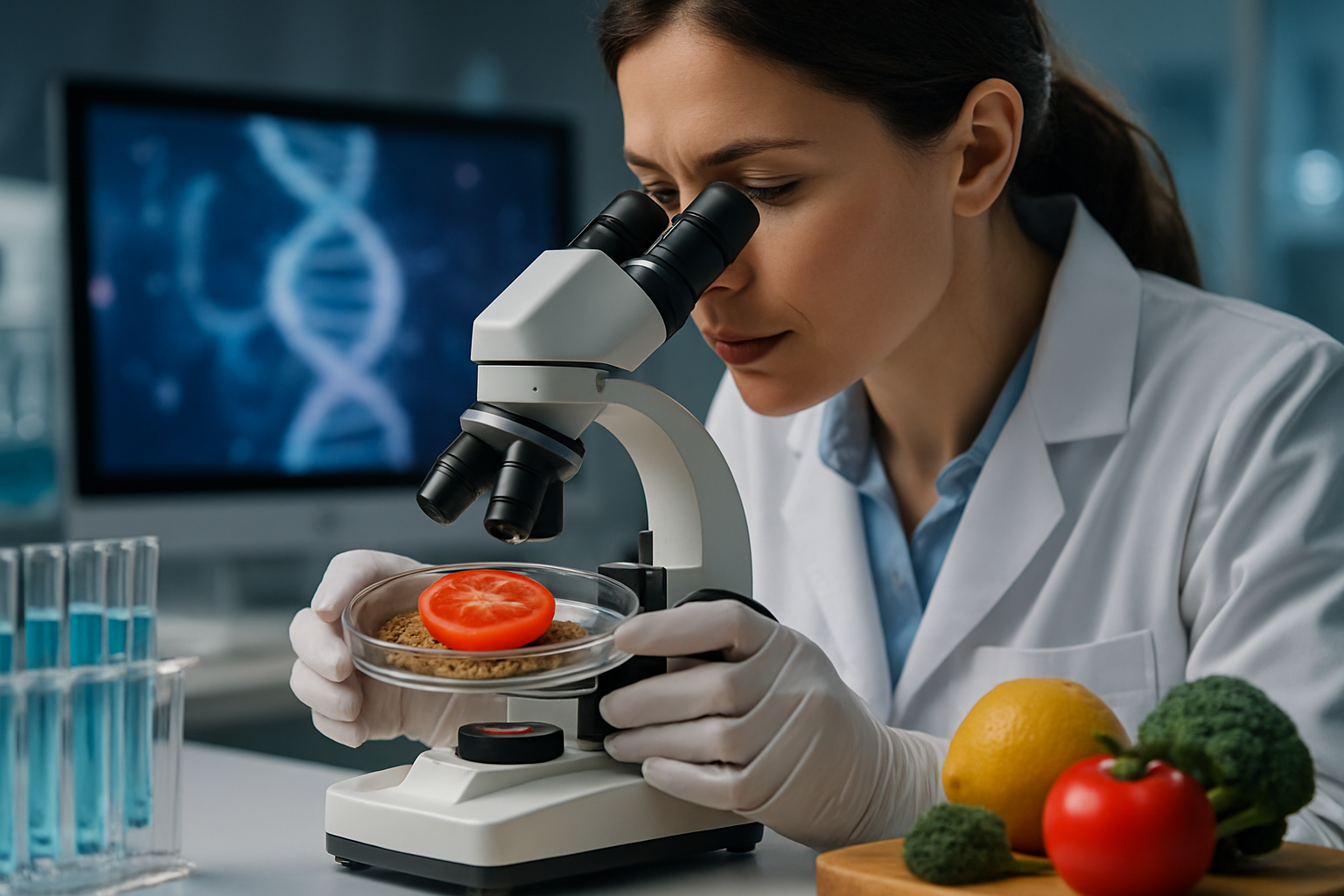Microbiome-Directed Nutrition: Personalizing Health Through Gut Analysis
Imagine a world where your dinner plate is precisely tailored to your unique gut ecosystem. A realm where food becomes medicine, custom-designed to optimize your health based on the trillions of microorganisms residing within you. This isn't science fiction—it's the cutting-edge field of microbiome-directed nutrition, and it's revolutionizing our approach to wellness.

The Microbiome: Our Internal Ecosystem
The human microbiome, a complex community of microorganisms living in and on our bodies, has emerged as a critical factor in overall health. The gut microbiome, in particular, plays a pivotal role in digestion, immune function, and even mental health. Scientists have discovered that the composition of our gut bacteria can influence everything from our metabolism to our mood.
Recent advancements in genomic sequencing and bioinformatics have allowed researchers to map and analyze the microbiome with unprecedented detail. This has led to a deeper understanding of how different dietary patterns can shape our microbial communities and, consequently, our health outcomes.
The Birth of Microbiome-Directed Nutrition
Microbiome-directed nutrition is a novel approach that tailors dietary recommendations based on an individual’s unique gut microbial profile. This method goes beyond traditional nutritional advice by considering the specific needs and preferences of a person’s gut bacteria.
The concept emerged from the convergence of several scientific disciplines, including microbiology, nutrition, and bioinformatics. By analyzing the genetic material of gut microbes through stool samples, scientists can now create detailed maps of an individual’s microbiome. This information is then used to develop personalized dietary strategies aimed at fostering a healthier, more diverse gut ecosystem.
How Microbiome Analysis Works
The process of microbiome-directed nutrition typically begins with a comprehensive gut analysis. This involves collecting a stool sample, which is then subjected to advanced genomic sequencing techniques. The resulting data provides a snapshot of the types and quantities of bacteria present in the gut.
Sophisticated algorithms analyze this information, comparing it to databases of known microbial profiles and their associated health outcomes. The analysis can reveal imbalances, deficiencies, or overabundances of certain bacterial strains, each of which may have specific dietary implications.
Tailoring Diets to Your Microbial Fingerprint
Once the microbiome analysis is complete, nutritionists and dietitians can develop highly personalized meal plans. These plans are designed to address any imbalances and promote the growth of beneficial bacteria while discouraging harmful ones.
For example, if an individual’s gut analysis shows a low diversity of fiber-degrading bacteria, their personalized plan might include a gradual increase in diverse plant fibers. Alternatively, someone with an overabundance of inflammation-promoting bacteria might be advised to reduce certain types of fats and increase anti-inflammatory foods.
The Promise of Precision Health
Microbiome-directed nutrition holds immense potential for improving various health conditions. Early research has shown promising results in areas such as:
-
Weight management: By tailoring diets to individual microbiomes, researchers have observed improved weight loss outcomes and metabolic health.
-
Inflammatory bowel diseases: Personalized nutrition strategies based on microbiome analysis have shown potential in managing symptoms of conditions like Crohn’s disease and ulcerative colitis.
-
Mental health: Emerging evidence suggests that modulating the gut microbiome through diet may have positive effects on mood disorders and cognitive function.
-
Autoimmune disorders: Some studies indicate that microbiome-directed nutrition could help in managing autoimmune conditions by reducing inflammation and supporting immune balance.
Challenges and Future Directions
While the potential of microbiome-directed nutrition is exciting, the field is still in its infancy. Challenges include standardizing analysis methods, interpreting complex microbial data, and translating findings into practical dietary advice.
Moreover, the microbiome is dynamic and can change rapidly in response to various factors, including stress, medications, and environmental exposures. This variability poses challenges for long-term dietary planning and necessitates ongoing monitoring and adjustment.
Despite these hurdles, researchers and clinicians are optimistic about the future of microbiome-directed nutrition. As our understanding of the gut ecosystem deepens and analytical tools become more sophisticated, we can expect increasingly precise and effective nutritional strategies.
Microbial Marvels: Fascinating Facts About Your Gut
-
Your gut contains trillions of microorganisms, outnumbering your human cells by a factor of 10 to 1.
-
The collective genome of your gut microbiome is 150 times larger than your human genome.
-
Gut bacteria produce neurotransmitters like serotonin, influencing mood and mental health.
-
Some gut microbes can affect how you metabolize medications, impacting their effectiveness.
-
Your microbiome composition is as unique as your fingerprint, influenced by factors like diet, genetics, and environment.
As we continue to unravel the complexities of the human microbiome, microbiome-directed nutrition stands poised to transform our approach to health and wellness. By harnessing the power of our internal ecosystems, we may soon enter an era of truly personalized nutrition—where every meal is an opportunity to nourish not just our bodies, but the trillions of microbes that call us home. This symbiotic relationship between humans and microbes, once fully understood and optimized, could unlock unprecedented levels of health and vitality, ushering in a new paradigm of precision wellness.




